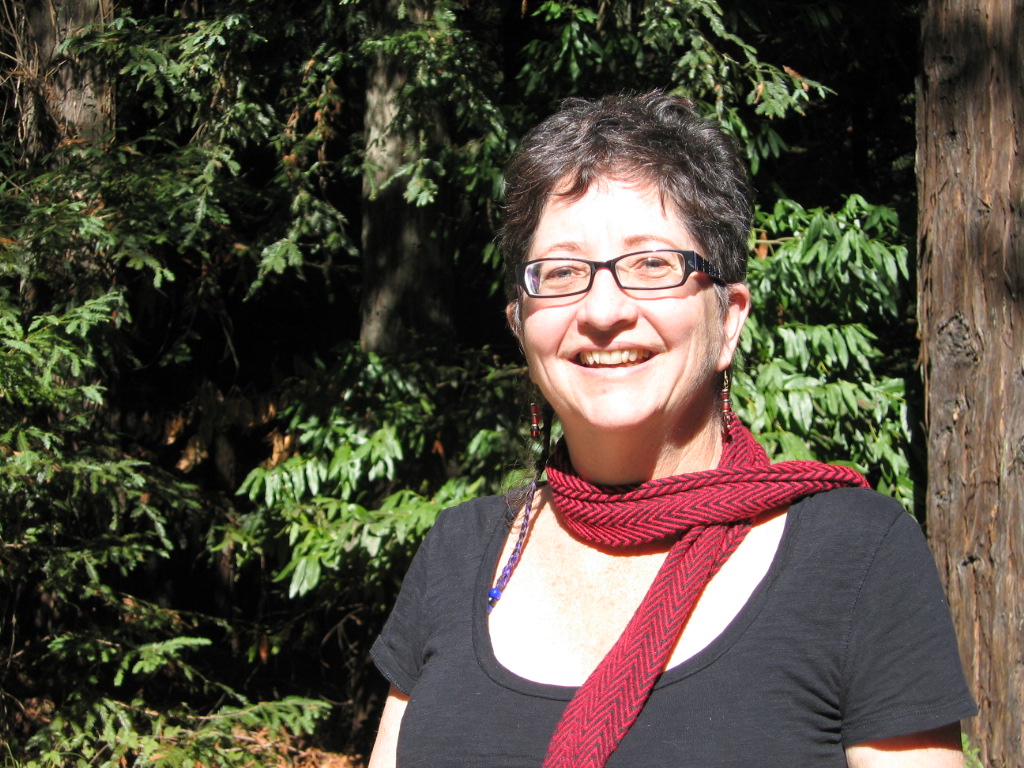Deborah K. Letourneau

Dr. Letourneau is full professor in Environmental Studies at the University of California, Santa Cruz, with research interests in plant-insect interactions, biodiversity, and environmental risk in the context of decision-making in managed systems. Over the past 25 years her research in the western USA, Borneo, Costa Rica, as a Fulbright Fellow in Mexico, Malawi and Colombia, and as a Christensen Research Fellow in Papua New Guinea has emphasized arthropod predators, herbivores and plants in the ecology and conservation of natural forests, biological control in farmer’s fields, and risk assessment for novel crop traits. She has written over 80 research articles and book chapters and co-edited 3 books on topics that include vegetation management for biological control of insect pests, food webs in organic versus conventional crop fields, trophic cascades in forest habitats, and environmental risks of genetically modified crops. She is a past Chair of the Agroecology Section of the Ecological Society of America, member of the National Research Council’s Committee on environmental impacts of genetically modified plants, and editor for the international journal Environmental Biosafety Research. As an Assistant Professor, she was featured in Discover Magazine’s 1991 issue on women in science. She spent sabbatical leave during 2009 as a Fulbright Teaching and Research Fellow at the Universidad del Valle, Cali, Colombia offering a course on Biodiversity and Agriculture with Drs. Inge Armbrecht and James Montoya Lerma.
Letourneau is an enthusiastic teacher, with undergraduate offerings in Entomology, Insect Ecology, Integrated Pest Management, Environmental Studies Capstone Senior Exit course and Interdisciplinary Research Methods in Environmental Studies. Her graduate courses, co-taught with social science colleagues, combine ecology, political ecology, public policy, political economy and history of science to model integrative approaches to the application of theory. She favors collaborative and on-farm research, believing that complex questions are best answered from the perspective of multiple disciplines and experiences in an atmosphere of mutual respect. This work with colleagues, growers, and students sparks exciting intellectual challenges on engaging questions with practical value for sustaining both livelihoods and the environment.
Deborah K. Letourneau received her Bachelor and Master of Science degrees in Biology and Zoology, respectively, from the University of Michigan, USA, and a PhD in Entomology from the University of California at Berkeley, Division of Biological Control.
Curriculum Vitae
Selected Publications
Letourneau, D. K. 2012. Integrated pest management: outbreaks prevented, delayed or facilitated? Ch 17 IN P. Barbosa, D.K. Letourneau, A. Agrawal (Eds.) Insect Outbreaks Revisited. John Wiley and Sons, York, NY.
Letourneau, D.K. et al. 2011. Does plant diversity benefit agroecosystems? A synthetic review. Ecological Applications 21:9-21.
Letourneau, D. K., J. A. Jedlicka, S. G. Bothwell, C. R. Moreno. 2009. Effects of natural enemy biodiversity on the suppression of arthropod herbivores in terrestrial ecosystems. Annual Review of Ecology, Evolution and Systematics 40:573-592
Letourneau, D.K. and S.G. Bothwell. 2008. Comparison of organic and conventional farms: challenging ecologists to make biodiversity functional. Frontiers in Ecology and Environment 6:430-438.
Letourneau, D.K. and A.H.G. van Bruggen. 2006. Crop protection in organic agriculture. In: Organic Agriculture - a Global Perspective (Publisher: CSIRO Publishing), A. Taji and P. Kristianesen (Eds.).
Letourneau, D. K, J. A. Hagen, and G. S. Robinson. 2004. Bt-crops: predicting effects of escaped transgenes on the fitness of wild plants and their herbivores. Environmental Biosafety Research 2: 219-246.
Letourneau, D. K. and L. A. Dyer. 2003. Top-down and bottom-up diversity cascades in detrital vs. living food webs. Ecology Letters. 6: 60-68.
Dyer, L. A. and D. K. Letourneau. 1999. Trophic cascades in a complex, terrestrial community. Proceedings of the National Academy of Sciences 96:5072-5076.
Letourneau, D. K. and L. A. Dyer. 1998. Experimental test in lowland tropical forest shows top-down effects through four trophic levels. Ecology 79(5):1678-1687.
Letourneau, D. K. 1998. Conservation biology: Lessons for conserving natural enemies. pp. 9-37, IN Conservation Biology. P. Barbosa (Ed). Academic Press.
Drinkwater, L.E., D. K. Letourneau, F. Workneh, A. H. C. van Bruggen, and C. Shennan. 1995. Fundamental differences between conventional and organic tomato agroecosystems in California. Ecological Applications 5(4):1098-1112.